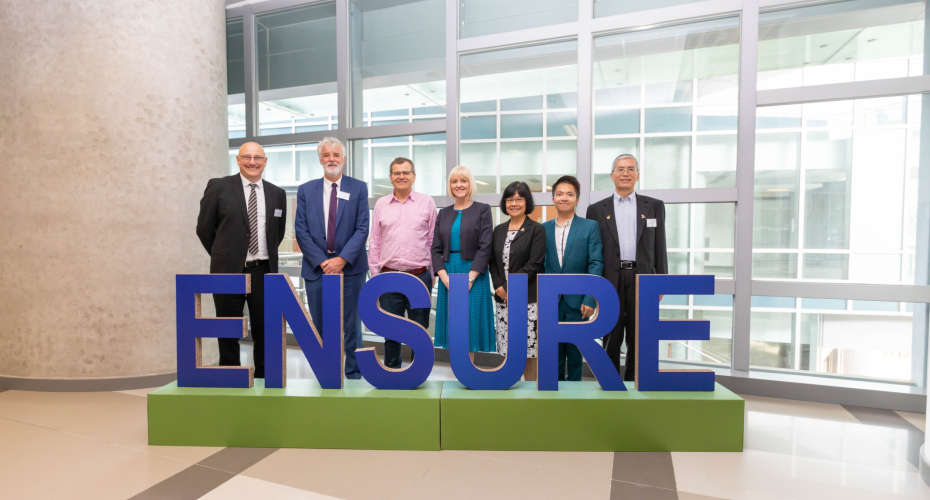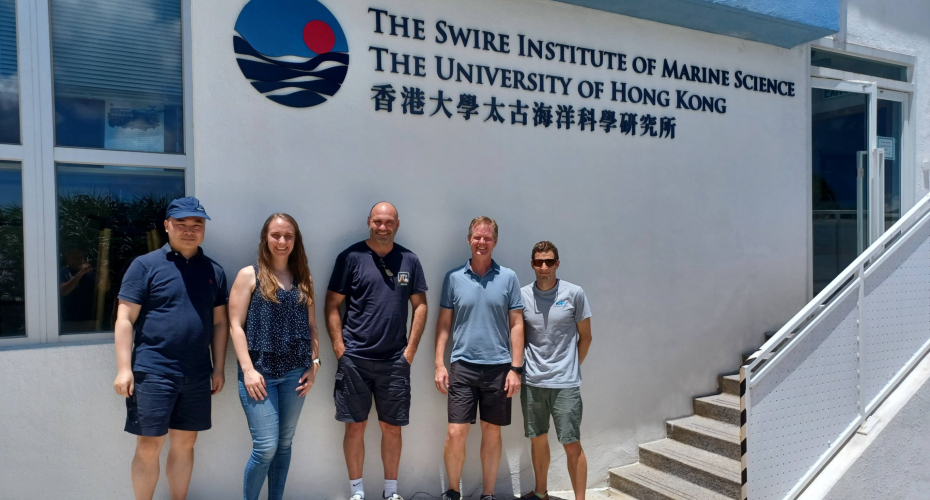A project investigating the potential for probiotics to improve food security and biodiversity in the aquaculture sector has become the first to be funded by an international research initiative.
The study, which is exploring whether cultured, live microorganisms can reduce disease in marine organisms, will receive £200,000 from the Environmental Sustainability and Resilience (ENSURE) joint centre, led by the University of Exeter and the Chinese University of Hong Kong (CUHK).
The funding will enable the project team to conduct testing of their probiotics, with the long-term view of establishing a global biobank for the sector.
The team is led by Associate Professor Haiwei Luo at CUHK, and Dr Robert Ellis, Senior Lecturer in Ecophysiology and Sustainable Aquaculture in the Biosciences department.
"Bringing together marine microbial ecology, organism physiology and sustainable aquaculture to help solve a global grand challenge is incredibly exciting, and the support of ENSURE is fundamental for this," said Dr Ellis. "Working with such a multi-national, multi-disciplinary team, directly embedded in industry, gives us the best opportunity to develop real-world impact and solutions, and I can't wait to see how far we can take this."
Founded in 2017, ENSURE has a remit to support international and interdisciplinary expertise to address critical global challenges posed by the climate emergency. In 2024, it launched a Grand Challenge scheme, designed to foster new and scalable research collaborations in areas relating to the environment and human health and wellbeing.

Four international teams were awarded small grant funding to design and develop new research projects, strengthen project plans, and determine their potential for future, in-depth research collaborations. These included the development of more resilient plant systems through the establishment of interdisciplinary teams; investigation of nature-based solutions for climate, air pollution and health in southwest England and Hong Kong; and an evaluation of the environmental impacts of geothermal energy exploitation.
This year, ENSURE launched the next stage of its Grand Challenge scheme - the Main Grant - offering funding of up to £200,000 over two years, to be further supplemented by match funding from external partners.
In round one, Associate Professor Luo and Dr Ellis cultured a new generation of marine probiotics - designed to be capable of working in natural environments - and used them successfully in trials with corals and oysters.
This next stage will focus on testing the persistence and effectiveness of these next-generation probiotics in molluscs, and their potential use in different stages of aquaculture. The team will also use climate modelling to identify priority regions for deploying these probiotics, based on climate risks to the aquaculture industry.
The long-term plan is to build a global probiotic biobank, starting in Hong Kong, the UK, and Australia, before expanding worldwide. This will lead to the creation of a company that will commercialise the use of probiotics to address climate change, biodiversity loss, and ensure food security in marine environments.
The project will directly address UN Sustainable Development Goals (SDGs), including 1) No Poverty, 2) Zero Hunger, 12) Responsible consumption and production, 13) Climate Action and 14) Life Below Water.







